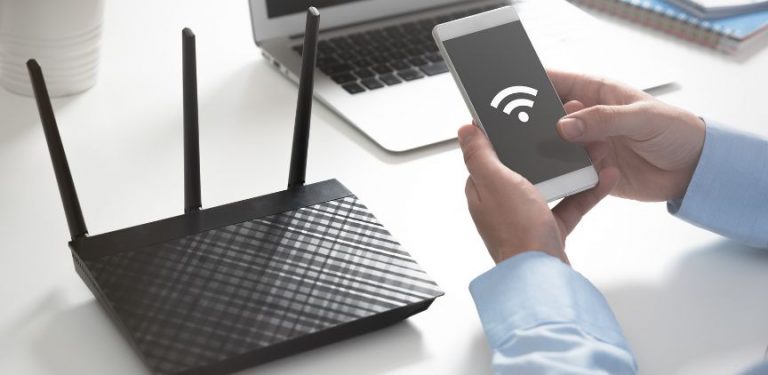The Best AI Assistants of Today
Artificial intelligence assistants are no longer just science fiction or novelty gadgets. They’re becoming trusted partners in both work and home life. Whether you’re drafting a report, planning a family trip or just asking your smart speaker to turn off the lights, today’s AI assistants are more capable than ever. Let's look at the best AI assistants of today, and their unique strengths that can make everyday tasks smoother, faster and more enjoyable.
1. Microsoft Copilot
Microsoft Copilot is built directly into tools many people already use every day: Word, Excel, PowerPoint and Outlook.
Imagine opening Excel and asking, “Show me a sales trend over the last six months,” and Copilot instantly generates a chart and explanation. Or picture writing a long report in Word: with a single prompt, Copilot can draft an outline, suggest edits and even make your writing more concise. For office workers and students, this saves hours of time.
It also works across Windows, so you can use it to organize files, summarize emails or create a professional slide deck in PowerPoint. Copilot feels like having a super-smart colleague who never gets tired of spreadsheets or formatting.
2. ChatGPT
ChatGPT from OpenAI has become a household name for its conversational abilities and creativity. It’s the go-to tool if you need help drafting a heartfelt birthday message, brainstorming blog ideas or even tutoring you through a tricky math problem.
For example, if your child is struggling with fractions, ChatGPT can explain step by step how to solve them and create practice problems on the spot. Developers also use it for coding—asking questions like, “Why won’t this function run?” and getting explanations in plain English.
Because ChatGPT can also summarize long articles or help plan a weekly meal schedule, it’s a flexible assistant that adapts to almost any personal or professional need.
Related Search Topics (Ads)
3. Amazon Alexa
Alexa has been around for years, but the new Alexa+ takes things further with generative AI. Beyond controlling lights, thermostats and music, Alexa now has richer conversations and remembers context.
For example, if you say, “Alexa, remind me to pay the electric bill,” it can follow up later with, “Do you want me to set up autopay for future bills?” It’s also deeply tied into shopping, so if you run out of paper towels, you can just ask Alexa to reorder them from Amazon.
In busy households, Alexa serves as a central hub: managing routines, answering quick questions and keeping your day on track, all while letting you stay hands-free.
4. Grok
Grok, developed by Elon Musk’s xAI and integrated into X (formerly Twitter), is the edgy newcomer. Unlike other assistants that focus on polished professionalism, Grok delivers real-time updates with personality. Want to know what’s trending in sports or politics right now? Grok taps directly into live feeds and gives you fast, unfiltered commentary.
For example, if a major game is happening, Grok can tell you the score, share highlights and even throw in a witty remark. It can also generate creative content or assist with coding tasks. Grok is less about managing your calendar and more about keeping you plugged into what’s happening in the world, sometimes with a sense of humor that makes it feel more human.
5. Claude
Created by Anthropic, Claude is known for reliability and the ability to handle long, complex projects. One standout feature is its skill in generating documents: ask it for a business proposal, and it can create a formatted Word file, a supporting spreadsheet and even a slide deck.
Claude can also “use a computer” by navigating forms or applications on your behalf, which cuts down on repetitive clicking and typing. For example, if you need to fill out multiple online applications, Claude can do it quickly while you supervise.
Its strong focus on safety and accuracy makes it a dependable partner for professionals, researchers and students.
6. Google Gemini
Google’s Gemini is designed to be more than just a chatbot—it’s a true multimodal assistant. That means it understands text, images and even live visuals.
Let’s say you’re fixing a leaky faucet. You can show Gemini what it looks like through your phone’s camera, and it can walk you through repair steps.
Planning a vacation? Gemini can search across websites, compare flight and hotel prices, and present the best options in a clear summary.
It’s also integrated into Android and Chrome, so if you have 20 tabs open for research, Gemini can pull out the highlights and give you one neat overview. This makes it especially useful for people who juggle lots of information at once.
Why Use an AI Assistant?
AI assistants are becoming like digital sidekicks, helping with tasks big and small. Here are some of the top benefits of using them today:
- Save time. Draft emails, summarize articles or crunch data in minutes.
- Boost productivity. Handle repetitive tasks so you can focus on what matters.
- Stay organized. Manage schedules, reminders and to-do lists with ease.
- Learn faster. Get instant explanations, tutoring or practice problems.
- Stay connected. Keep up with the latest news, trends and entertainment.
- Make life easier at home. Control lights, appliances and shopping with simple voice commands.
Whether you want a digital helper at work, a tutor for your kids or simply a smarter way to manage your household, there’s now an assistant ready to step in.

